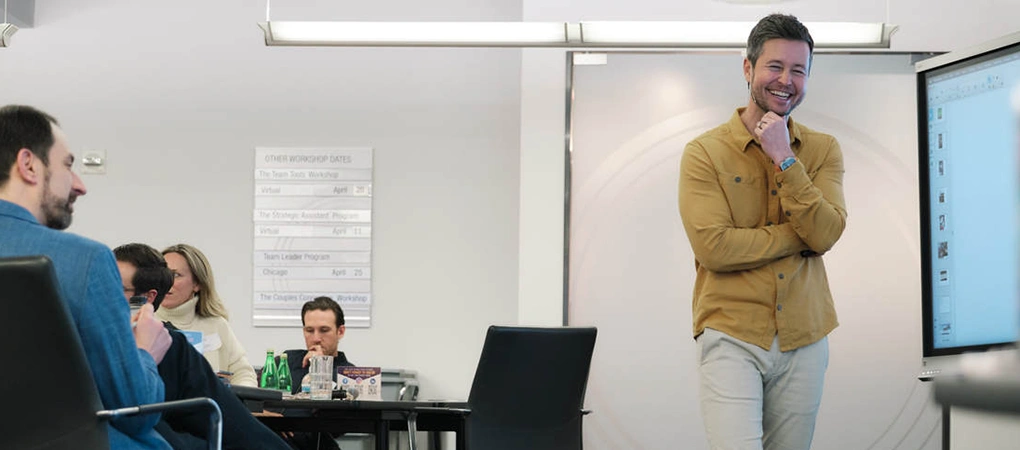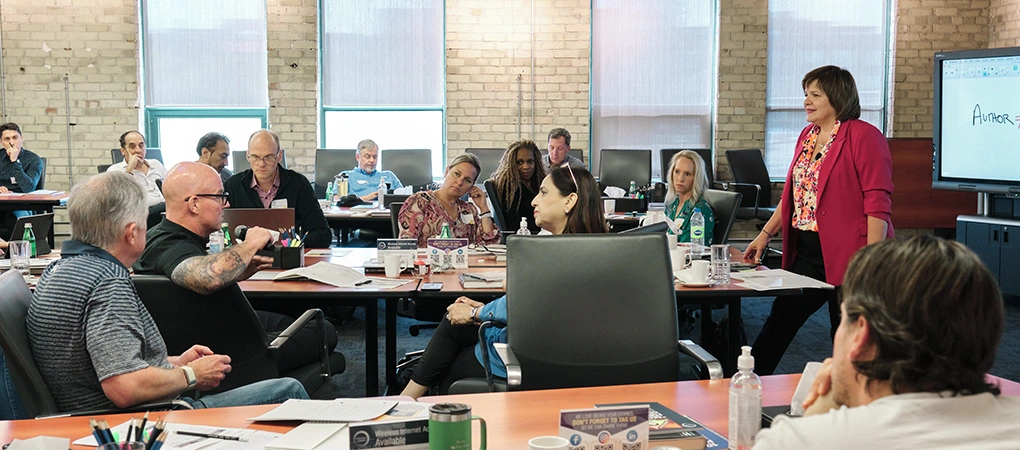10 Nice Ways To Say No And Still Be A Team Player
Shannon Waller

Being an overachiever isn’t usually a bad thing unless you’re guilty of constantly over-committing and under-delivering—then it becomes your Achilles’ heel.
Far too often, I’ve watched people shoot themselves in the foot by creating what we call a “mess.” At Strategic Coach, we define messes as any situation in which you’ve obligated yourself to something without having a real emotional commitment. This can be a direct result of not knowing how to confidently say no when you know it’s in your best interest.
Learning how to say no is an incredibly important and undervalued skill in the marketplace. When you commit yourself to something, it’s a big deal. You’re committing your time, mental energy, and talents, so it’s critical—especially for your well being—that you’re able to follow through on that promise.
So instead of getting yourself into a situation where you don’t have the time, skills, or mental energy to devote to something you’ve committed to, keep yourself out of hot water by using these nice ways to say no.
- “Let me get back to you on that.” This is a great strategy to use when you’re caught off guard by a request and aren’t sure how productive it is for you to commit to it. This buys you time to think about the situation and assess whether you actually have the time or energy for it.
- “I’m not available until [insert date]. Does that work in your time frame?” You may be interested in a project but don’t have time right now to get it done to your standard of quality. Letting the other person know what your schedule is like helps to avoid creating false expectations, which is always appreciated down the line.
- Suggest a team member you think may be a better fit for the project. If you know someone on your team has extra time or skills that are better suited to the task, say, “I can’t help you with this but I think this person may be able to.” This is about being resourceful. You’re still contributing and being helpful without volunteering yourself.
- “I would, but I already have a prior commitment.” If you’ve already committed yourself to something, this is a valid and appropriate reason to say no. This explanation shows your interest while gracefully excusing you at the same time.
- “I can’t give my best to this, and it deserves someone who can.” When you validate how important something is while explaining that you can’t give your best to it, it will almost always be met with respect. People appreciate honesty and knowing that their requests are being taken seriously.
- “I know you think I’m the right person for the job but I’m really not.” This shows a high level of self-awareness and that you know where you end up doing more harm than good. Don’t feel bad about saying no to things where you know you’d make a mess. No one wants you to take something on if you aren’t able to do a quality job.
[bctt tweet=”“Don’t feel bad about saying no to things you know you’d make a mess of.””]
- “Send me a summary of exactly what you want me to do.” Be cautious about what you’re actually taking on. It’s natural for people to use others as sounding boards for ideas but the danger is when their project ends up on your plate. If you suspect someone is trying to pass the buck, this is a good way to make sure they’re serious before you commit your time and talents.
- “I can’t help you with that part of it but I can help you think it through.” If an activity isn’t in your wheelhouse, make that clear—but do offer whatever contribution you can make. Helping someone hash something out can be just as valuable as getting involved yourself.
- “Use me as a last resort.” This is one of the nice ways to say no that doesn’t commit you but also doesn’t make you completely unavailable.
- Or, you can just say no. A lot of us worry about how we’re being perceived by others, so we don’t speak up. But there are a lot of people who prefer a more direct response because they can get moving rather than waiting on an answer. It may also be a learning opportunity for them to figure out how to solve a task another way.
Getting comfortable with nice ways to say no is one of the most valuable tools you can use in entrepreneurial teamwork. It’s empowering to realize how it frees up your time and mental energy. One of the skills most respected among entrepreneurs is being conscious of how you commit your talents, energy, and attention. So get into the habit of fully committing yourself, not just obligating yourself!
[contentblock id=kp-ts]








